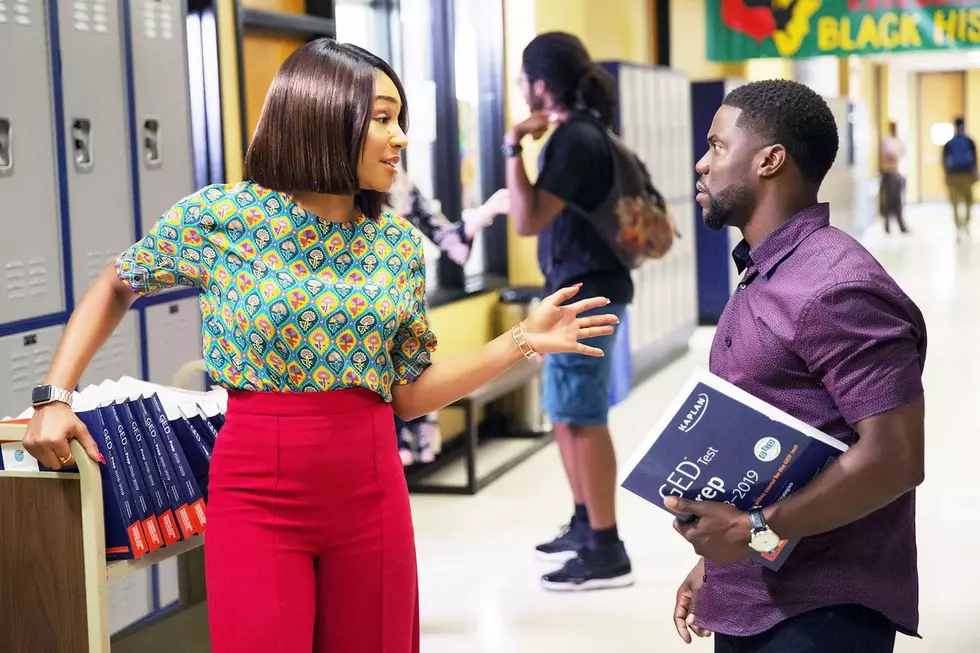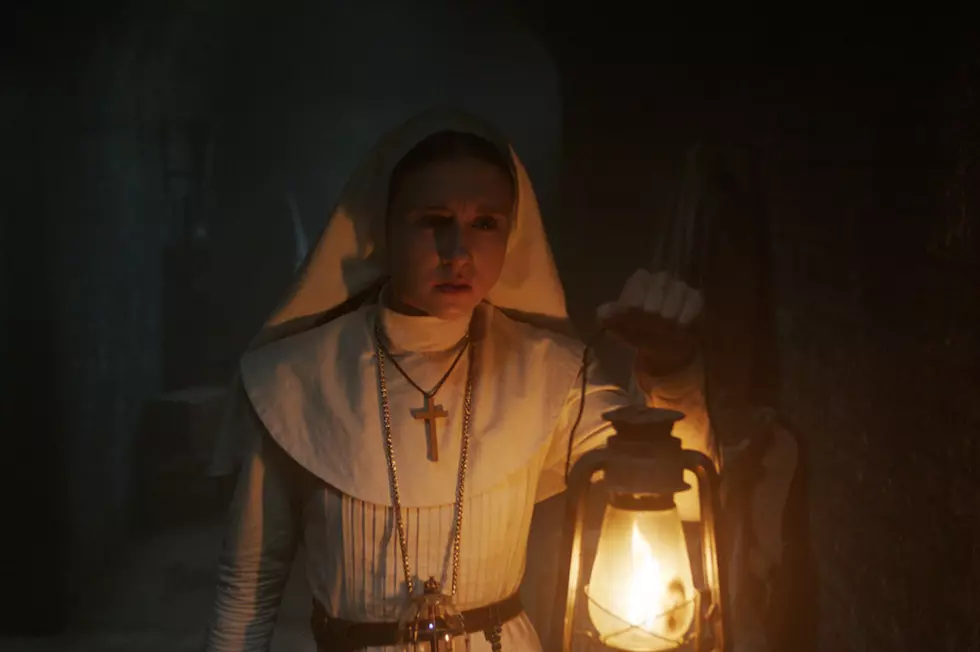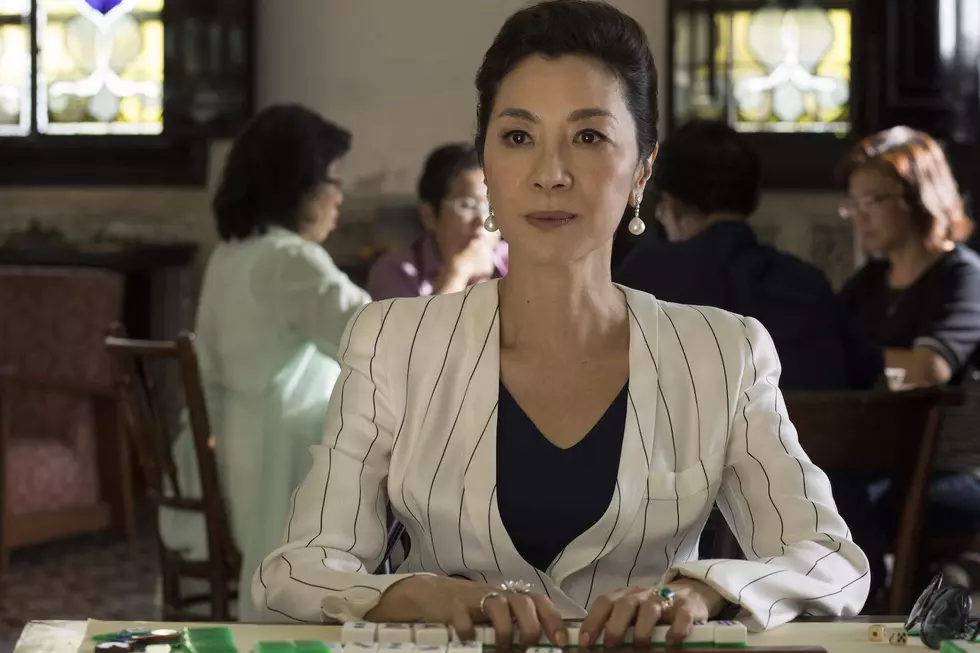
Review: ‘Crazy Rich Asians’ Is a Romantic Comedy With Surprising Heart
I just have to accept the fact that I will never get to attend a million-dollar wedding in my life. It’s not fair, but it is what it is. At least I have Crazy Rich Asians, which features one whopper of a matrimony, complete with a flooded aisle, guests dangling candles over the bride as she walks through the church, and pews covered in tall grass so that the whole ceremony looks like it’s taking place in some idyllic field. My grandmother would have called it ungapatchka, but I loved every second. When do you get to see something this gaudy carried off with such sincerity?
This is surely part of the film’s subconscious appeal. As Crazy Rich Asians makes quite clear, its central family is not very welcoming to outsiders. But as audience members, we get to be an insider for a couple hours, with a front row seat to all of the extravagant behavior. The surrogate for our point-of-view to all this conspicuous consumption is Rachel Chu (Constance Wu), an NYU economics professor who’s madly in love with a man named Nick Young (Henry Golding). Somehow, Rachel has no idea that her Nick Young is the Nick Young; the only son of one of the wealthiest families in Asia. You don’t Facebook the dude you’re dating? Come on, Rachel.
She only discovers the truth on a trip with Nick back home to Singapore to attend his best friend’s wedding. That’s where Rachel realizes her man’s a billionaire and, more importantly, meets Nick’s domineering mom Eleanor, played with icy grace and placid intensity by Michelle Yeoh. Nick’s Dad is off somewhere running the family real estate business, so it falls to Eleanor to maintain their domestic empire; supervising every element of Nick’s pal’s wedding and sizing up Rachel as a potential wife for her son. Nick assumes his mom will be delighted that he’s bringing home a Chinese girl. But Rachel is Chinese American, and Eleanor’s low opinion of Americans puts the two women immediately at odds.
In structure and premise, Crazy Rich Asians is a lot like the screwball comedies of the 1930s; big, broad romantic adventures featuring men and women whose bank accounts are almost as big as their passions — with the obvious difference that those movies were whiter than a bridal dress shop. Crazy Rich Asians also reminded me of the Fifty Shades of Grey franchise, another escapist fantasy about an “ordinary” (but spectacularly gorgeous) woman who falls in love with an obscenely wealthy man (who never sets foot in an office or does even a minute of work) whom she loves for his personality (and also his impressive physique) and not his ability to provide her with limitless financial support (which he does anyway). But where the Fifty Shades movies were repeatedly bogged down in ludicrous melodrama and plot twists, Crazy Rich Asians focuses in a much more satisfying way on its characters, and on the believable tension between Rachel and Nick’s family.
The movie’s not perfect. The Kevin Kwan novel it’s adapted from had an enormous cast, and director Jon M. Chu and writers Peter Chiarelli and Adele Lim struggle to fit them all into a 120-minute movie. The character who appears to suffer the most is Astrid (Gemma Chan), Nick’s glamorous cousin who’s trapped in a troubled marriage. Astrid’s difficult relationship with her husband Michael (Pierre Png) is meant to counterbalance Rachel and Nick’s, but the subplot doesn’t get enough screen time, and something seems missing in Astrid’s characterization. (She’s introduced doting on a young girl she meets in a jewelry store where she buys a $1.5 million pair of earrings, then barely pays attention to her own child through the rest of the film.)
Crazy Rich Asians could have also used more of Rachel’s outrageous college buddy (Awkwafina) and her equally over-the-top family (including Ken Jeong and Koh Chieng Mun as her mom and dad). They provide another point of comparison to the Youngs and, more importantly, they each give hilarious, scene-stealing performances — but you can’t steal scenes if you’re not onscreen, and Awkwafina, Jeong, and Mun are missing from long chunks of the film. Given how big and rich the supporting cast is, this material may have been better suited to a television series than a movie.
Chu’s Crazy Rich Asians is good, though, even if it is a little overcrowded. Wu and Golding have a palpable connection onscreen, and the Young family’s outlandish lifestyle is good for plenty of laughs. That much I expected. What surprised me was how much the end of the film moved me. While Crazy Rich Asians may come from a specific and personal place for its creators, parts of it are universal and accessible enough to speak to a broad audience. Anyone who’s felt the pressure of measuring up to demanding in-laws or faced adversity from people who stereotyped them based on their background will find things to relate to in this story.
I won’t lie, I got a little choked up watching the scenes between Rachel and her mom (Tan Kheng Hua). Their relationship helps turn Crazy Rich Asians into a lovely tribute to the tenacity and perseverance of immigrants, and gives the film’s ending an added bit of oomph. Speaking from experience, I can also say that forceful mothers like Eleanor are not exclusive to Asia. In other words, Crazy Rich Asians reminded me of my family. I suspect it will remind you of yours, regardless of where they come from or how much money they have.
More From Mix 93.1










